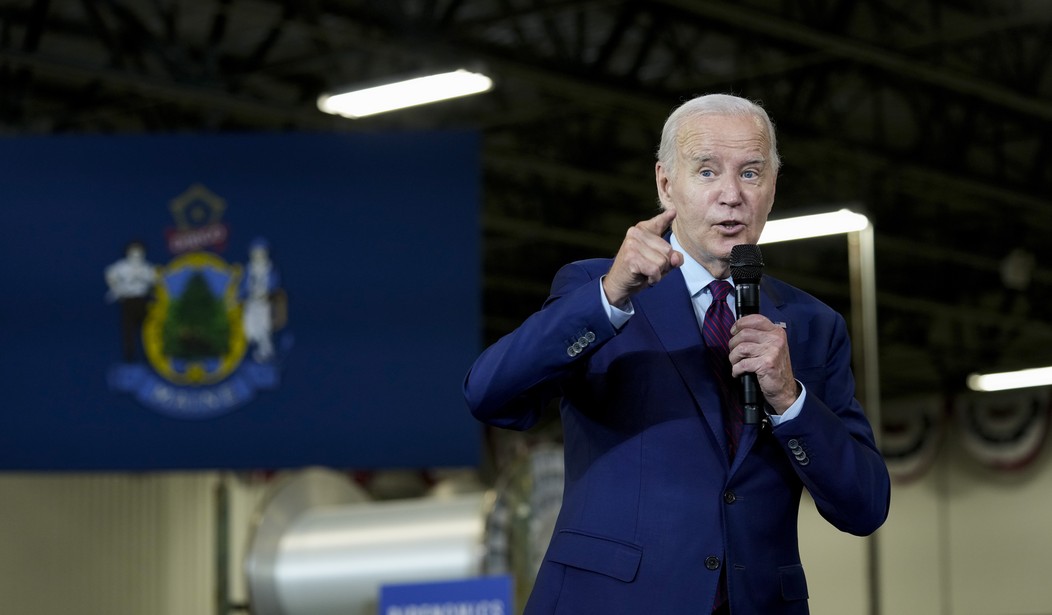In the face of mounting financial challenges, it’s becoming increasingly clear that the Biden Administration’s economic policies, often referred to as “Bidenomics,” have failed to stabilize the American economy. Recent polls and economic data paint a bleak picture of the nation’s economic trajectory, with Americans grappling with a record amount of credit card debt. This debt surge is a direct consequence of persistent inflation and economic woes, driving many to question the effectiveness of President Joe Biden’s economic stewardship.
According to a recent CNN poll, 51 percent of Americans believe the nation’s economy is still declining, bucking the recent positive economic news trend. The poll also shows President Biden’s approval ratings have plummeted to 37 percent when evaluating his handling of the economy and a mere 30 percent for his management of the rampant inflation. Even among political independents, only 26 percent approve of his approach to tackling inflation.
A Reuters/Ipsos poll discovered that many who voted for President Biden in 2020 now express dissatisfaction with the economic performance under his leadership, casting doubts on their support for his potential re-election bid in 2024. These sentiments underscore the broader concerns about the nation’s economic direction, reflected in the president’s consistently low approval ratings, which now linger at 40 percent.
A critical aspect of the economic struggle experienced by Americans is the unprecedented surge in credit card debt, now exceeding a staggering $1 trillion. Stubborn inflation and spiking interest rates have combined to burden consumers, who grapple with the increasing costs of essential goods and services. This dire scenario is vividly portrayed in the New York Fed’s latest Quarterly Report on Household Debt and Credit, which reveals that credit card balances ballooned by nearly 4.6 percent, with an additional $45 billion incurred during the second quarter alone.
This worrying trend is further exacerbated by the fact that credit card balances have risen for five consecutive quarters, showcasing some of the most substantial growth rates over two decades. The ongoing escalation is attributed to a combination of factors: inflation, higher interest rates, and the overall rising cost of living. Notably, the average credit card annual percentage rate (APR) has surged to a historic high of 20.53 percent, surpassing the previous record set in July 1991.
The harsh reality is that many households are now turning to credit cards out of necessity, with budgets stretched to their limits. Many families are left with no alternative, forced to finance purchases at exorbitant rates due to a lack of options. An alarming 61 percent of Americans report living paycheck to paycheck, a situation worsened by the inflation-induced financial strain mainly affecting low-income individuals struggling to make ends meet.
The impact of this financial turmoil isn’t evenly distributed. Low-income Americans bear the burden as they witness their already limited wages being eroded by the price fluctuations that inflation brings. Everyday essentials like food and rent are becoming increasingly unaffordable, pushing individuals to resort to extreme measures to cope. The dire circumstances have forced some to tap into their 401(k) accounts prematurely, as revealed by Bank of America’s report of a 36 percent increase in hardship withdrawals during the second quarter of 2023.
The prevailing economic climate underscores the significant failure of Bidenomics to provide relief and stability for the American people. As credit card debt surpasses the $1 trillion mark, it’s evident that the convergence of persistent inflation, high-interest rates, and increased living costs has placed a heavy burden on households nationwide.
The mounting dissatisfaction with President Biden’s economic management further fuels the narrative of a nation in turmoil — with a leader who seems not up to the job. As the American public grapples with economic uncertainty and record levels of credit card debt, it’s clear that the road to recovery will require a reevaluation of economic policies and a renewed commitment to addressing the pressing concerns of the citizens.













Join the conversation as a VIP Member